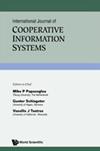土著卫生工作者:探索角色如何影响高等教育体验
IF 0.5
4区 计算机科学
Q4 COMPUTER SCIENCE, INFORMATION SYSTEMS
International Journal of Cooperative Information Systems
Pub Date : 2020-10-08
DOI:10.5204/ijcis.v13i1.1405
引用次数: 3
摘要
土著人民通过领导和成为卫生工作人员的一部分,在改善土著卫生成果方面发挥着不可或缺的作用。因此,教育土著卫生专业人员非常重要。土著卫生学生并不总是因为他们的多重专业和社区角色以及这些角色如何影响他们的大学教育体验和成功而受到认可。因此,本文考察了澳大利亚一所大学27名土著卫生学生及其讲师围绕角色概念的经历。该研究采用了本土研究方法论,并结合了理论驱动的主题分析。研究结果确定了对土著卫生学生有重大影响的积极和消极的角色体验。研究表明,学生在家庭和社区中的角色是复杂的,当学生上大学时,可能会与学生和未来的职业角色发生冲突。为这项研究接受采访的学者们对土著学生复杂的现有角色几乎没有了解。这项研究可能有助于大学和教育工作者支持土著卫生学生从社区过渡到大学并取得成功。本文章由计算机程序翻译,如有差异,请以英文原文为准。
Indigenous Health Workforce: exploring how roles impact experiences in Higher Education
Indigenous people have an integral role to play in improving Indigenous health outcomes by leading and being a part of the health workforce. Educating Indigenous health professionals is hence of great importance. Indigenous health students are not always acknowledged for their multiple professional and community roles and how these can affect their university education experience and success. This paper hence examines the experiences of 27 Indigenous health students and their lecturers at one Australian university around the concept of roles. The study used an Indigenous Research Methodology combined with theory driven thematic analysis. Results identified both positive and negative experiences of roles that significantly affect Indigenous health students. The study showed that students’ roles in family and community are complex and can come into conflict with student and future professional roles when students attend university. Academics interviewed for the research showed little to no understanding of Indigenous students’ complex existing roles. This research may assist universities and educators to support Indigenous health students to transition from community to university and achieve success.
求助全文
通过发布文献求助,成功后即可免费获取论文全文。
去求助
来源期刊

International Journal of Cooperative Information Systems
工程技术-计算机:信息系统
CiteScore
2.30
自引率
0.00%
发文量
8
审稿时长
>12 weeks
期刊介绍:
The paradigm for the next generation of information systems (ISs) will involve large numbers of ISs distributed over large, complex computer/communication networks. Such ISs will manage or have access to large amounts of information and computing services and will interoperate as required. These support individual or collaborative human work. Communication among component systems will be done using protocols that range from conventional ones to those based on distributed AI. We call such next generation ISs Cooperative Information Systems (CIS).
The International Journal of Cooperative Information Systems (IJCIS) addresses the intricacies of cooperative work in the framework of distributed interoperable information systems. It provides a forum for the presentation and dissemination of research covering all aspects of CIS design, requirements, functionality, implementation, deployment, and evolution.
 求助内容:
求助内容: 应助结果提醒方式:
应助结果提醒方式:


